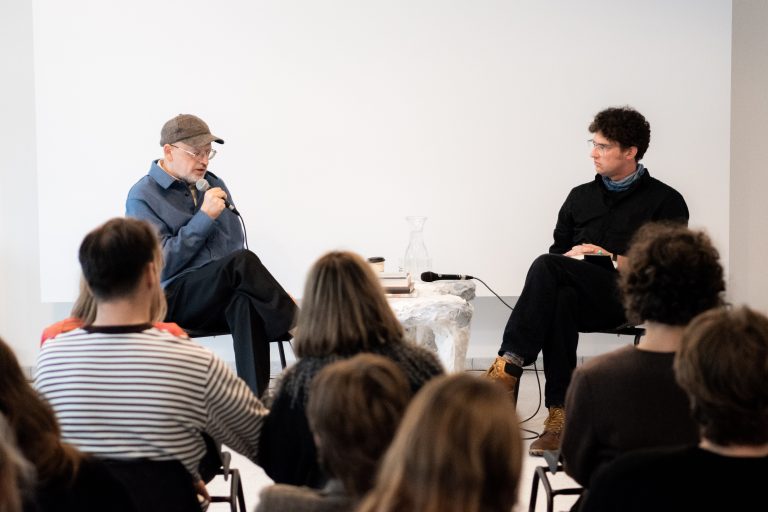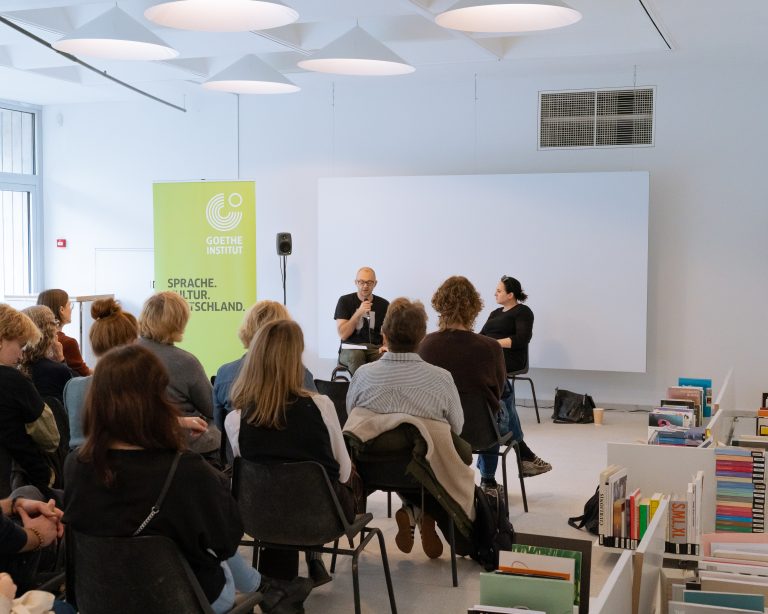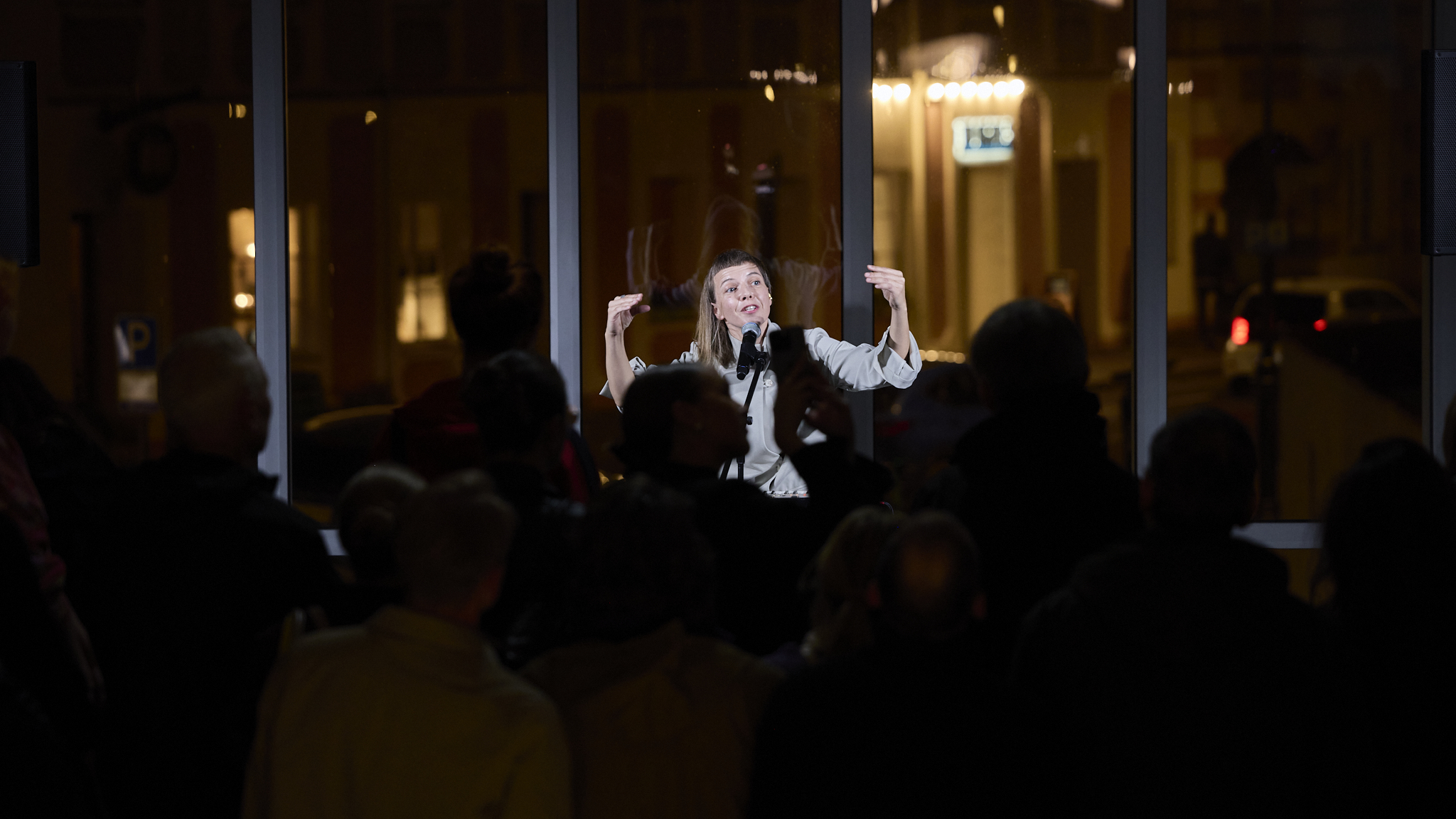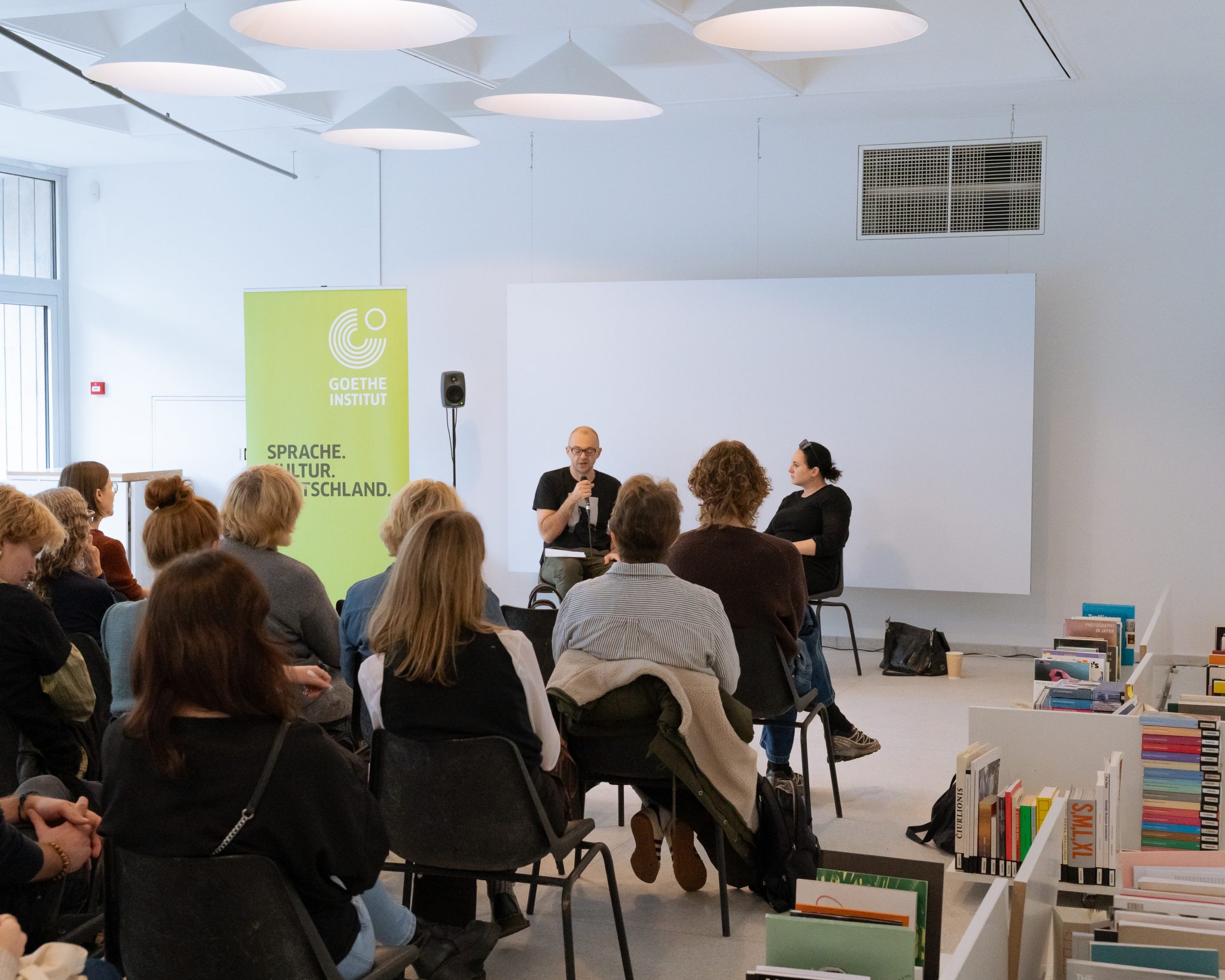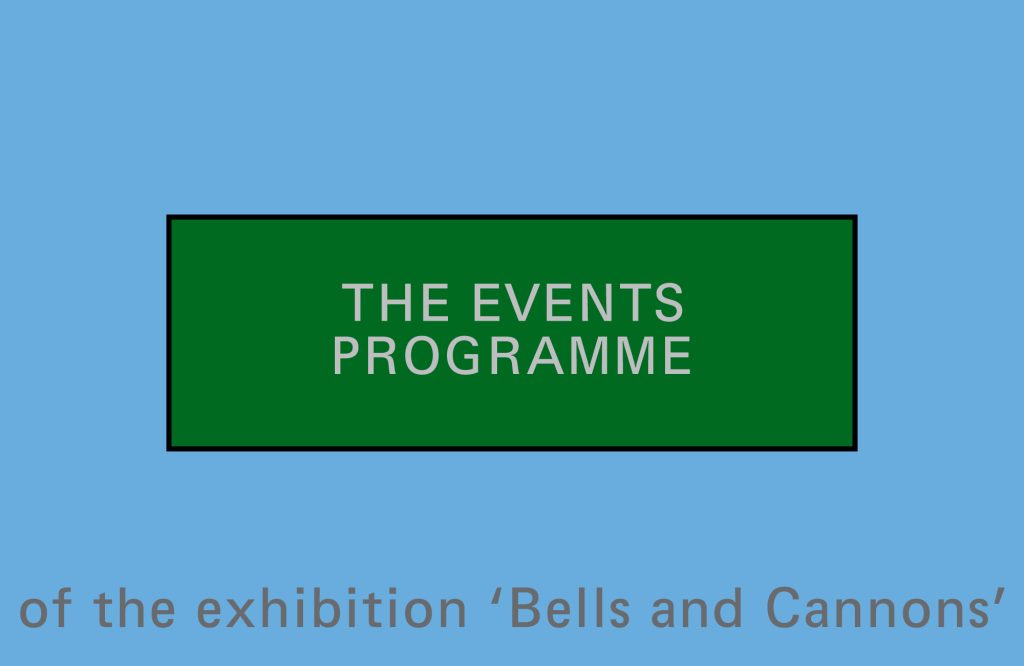
The exhibition ‘Bells and Cannons. Contemporary Art in the Face of Militarisation’ is accompanied by a programme of events that delves deeper into the issues it raises and offers opportunities to engage more closely with the work and ideas of the participating artists and invited speakers.
The programme began during the exhibition’s opening weekend, when visitors experienced Lina Lapelytė’s performance Instructions for the Woodcutters and Other Songs. This was followed by a public conversation between Judaica researcher Mantvydas Šulskus and artist Deimantas Narkevičius about his 1999 film Legend Coming True (1999), which is featured in the exhibition. On the final Sunday of October, political scientist Vytis Jurkonis chaired a conversation with Nino Haratischwili, a theatre director and publicist from Georgia who lives and works in Germany.
Admission is free for all events in this series, which will take place at the CAC Reading Room.
DISCUSSION ‘SECURISATION: WAR LINGO STATE OF MIND’
Saturday, November 15, 2025 at 2pm
On Saturday, 15 November, researcher Eglė Elena Murauskaitė will moderate a discussion on the ‘mentality of looming threat’ and processes of securitisation. The conversation will feature Caucasus region expert and human rights defender Regina Jegorova-Askerova, political scientist Viktorija Rimaitė-Beržiūnienė, and photographer Denis Vėjas. Murauskaitė is a text-based artist, international security specialist, and the author of the ‘Bells and Cannons’ audio guide.
A second discussion curated by Murauskaitė, focusing on global migration and security challenges in the Baltic context, will follow in early 2026. Its participants are art agency Artscape founder and director Aistė Ulubey, political scientist Maksim Milta, and New Art Museum in Gdansk curator Aleksandra Grzonkowska.
LECTURE BY THE HISTORIAN FELIX ACKERMANN
Thursday, December 4, 2025 at 6pm
The lecture by German historian Felix Ackermann takes as its starting point from the geographical overlap between the German armoured brigade’s training grounds and Holocaust memorial sites. Ackermann will explore the complex cultural and historical dimensions of the German brigade’s deployment in Lithuania, paying particular attention to the German perspective.
BOOK LAUNCH: LEAK. THE END OF THE PIPELINE
! The event has been postponed to February 2026
On 10 December, the CAC will host the launch of a publication accompanying the joint installation Leak. The End of the Pipeline by Philipp Goll, Oleksiy Radynski, and Hito Steyerl. Created in 2024, the installation reflects on the Nord Stream gas pipeline project, exploring its connections to German and Russian political ambitions, the associated cultural diplomacy initiatives, and the project’s multifaceted consequences. The installation was first presented in Leipzig and is currently shown simultaneously at the Bells and Cannons exhibition at the CAC and at the Kyiv Biennial exhibition at the Museum of Modern Art in Warsaw.
DISCUSSION ‘NAVIGATING THE MAGIC AND FOG OF MILITARISATION’
Friday, December 19, 2025 at 6pm
On 19 December, the CAC Reading Room will host a conversation between two sociologists: Eglė Rindzevičiūtė, Professor at Kingston University, and Victoria Donovan, Professor of Ukrainian and East European Studies and Director of the Centre for Global (Post)Socialisms at the University of St Andrews. Their talks and discussion will revolve around civic responsibility and ethics in the context of critical debates on militarisation.
January – February 2026
In January, alongside the discussion on migration, a meeting with poet and publicist Tomas Venclova is planned, as well as guided tours led by members of the exhibition team. Finally, just before the exhibition closes – on the last weekend of February – the events series will conclude with a lecture by Svitlana Matviyenko, a Ukrainian media theorist currently living and working in Canada.
The exhibition ‘Bells and Cannons’ and its accompanying events programme form part of the project ‘Aspects of Presence’, jointly organised by the CAC, the Goethe-Institut in Lithuania, and the Akademie der Künste in Berlin. The project will culminate in a publication to be released in 2026. Participation in these events will provide an opportunity to engage with the forthcoming book’s themes and to hear discussions on the relationships between war, militarisation, and contemporary art.

